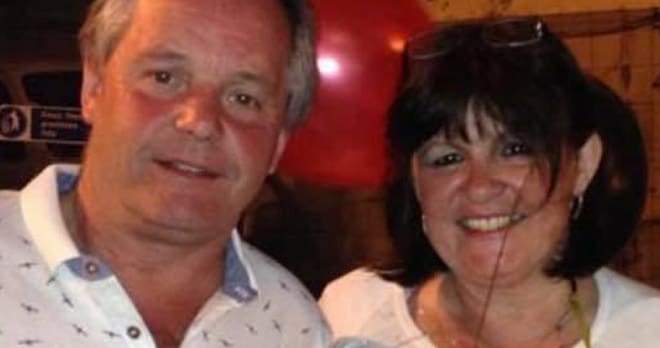Our firm secures landmark High Court win for Vauxhall electrician whose wife developed mesothelioma after washing his asbestos-contaminated overalls

Lydia Carey, 60, passed away late last November after being diagnosed with mesothelioma just over a year earlier. Soon after her diagnosis she instructed Helen Childs – head of RWK Goodman’s specialist team of asbestos claims lawyers – to investigate a potential claim for compensation. Her primary concern was to ensure her family would be cared for, and to access any potential treatment to hold her cancer in check.
Mrs Carey could not remember coming into contact with asbestos in her own work, but she thought her father and husband had worked with asbestos and she may have come into contact with it from their work clothes.
Her husband, John, described coming into contact with asbestos as an apprentice and then fully qualified electrician for Vauxhall, at their trucks division in Dunstable between 1973 and 1979. He had met Lydia in 1976 and they married in the summer of 1978. Mr Carey described how he often used to work overtime and always used to work the summer shutdown, when large maintenance and repair jobs were undertaken. He described how this involved the stripping off and re-application of asbestos on pipework throughout the factory, and that his work clothes were contaminated with dust. There were no showering facilities and no compulsory overalls or laundering service.
Mr Carey was incredibly distressed to think that he may have unwittingly have contributed towards his wife’s illness.
Mrs Carey commenced court proceedings in the High Court in London early in 2018, and Vauxhall defended the claim, arguing there was very little asbestos left in the factory by 1973, that any jobs which disturbed asbestos were carried out under strictly controlled conditions, and that Mr Carey would not have taken his overalls home to be laundered. They disclosed over 2,000 pages of documents, mainly from Vauxhall’s Luton factory, and nowhere within those documents was confirmation that asbestos had already been removed from Dunstable or that safe systems of work with asbestos were introduced until the 1980s, even though the dangers of exposure to asbestos were appreciated from the 1960s.
Sadly, Mrs Carey did not survive long enough to see her claim concluded, or to access the immunotherapy treatment that she so dearly hoped might hold her illness in check. She died in late November, just a week before her trial to decide whether or not Vauxhall was to blame was due to be heard.
Mr Carey was reeling from his loss but he took the very courageous decision to follow Lydia’s wishes and continue with the trial, which was heard by Her Honour Judge Karen Walden-Smith in the High Court in London over four days in December last year.
Barrister John-Paul Swoboda, of 12 King’s Bench Walk, represented Mr Carey at the trial.
Mr Carey has just learnt that the trial to decide whether or not his former employers were responsible for Lydia’s illness has been decided in his favour.
When hearing of the court’s decision, he said:
“Lydia and I met when we were teenagers and were married for more than 40 years. She was the lynchpin of our whole family. When she became unwell and was told that she was terminally ill her only concern was for her family, including her father who she used to care for.
“She was desperate to access treatment to prolong her life but sadly she died just a week before her trial was due to take place. The judgment in our favour is bittersweet. Obviously I am pleased that my former employers have been found responsible after allowing me – and potentially hundreds of others – to travel home contaminated with asbestos. However, it is very difficult to contemplate that we have lost Lydia so many years too soon – and that her illness might have been prevented.
“I would like to sincerely thank both Helen and John-Paul for their kindness and professionalism. They were often available 24/7 and were such a support to us, and at a time which was a 16-month nightmare for me and my family they were both dedicated and, above all, sympathetic to our feelings. Thank you both.”
Passing judgment, Her Honour Judge Karen Walden-Smith said she was satisfied that Mr Carey had been exposed to significant quantities of asbestos dust which was transferred back home on his overalls. Read the full judgement here.
Helen Childs, specialist asbestos solicitor with RWK Goodman who represented the Carey family, said:
“This has been a difficult case which was vigorously defended. The Carey family were courageous and dignified throughout and it has been my privilege to help them secure this judgment.
“Like me, they are relieved that at last some good will come from such a distressing situation and that Lydia’s family will be cared and provided for as she would have wished. Sadly asbestos can affect not only those workers who came into contact with it through their own employment, but also their family members, and employers should have appreciated the dangers of this from the mid 1960s.
“This is the first successful claim for such a family member to be decided at court in England. Mesothelioma is a rare illness but a continuing legacy of Britain’s industrial past. The treatment for mesothelioma is advancing very rapidly, and the only way for those affected to receive bespoke immunotherapy – the most promising treatment – is if they have private funding.
“Despite our very best endeavours, the judgment in this case was too late for Lydia to access this treatment, which is heart-breaking for her family. However, her wishes to provide for and care for her family will be met.
“We would encourage anyone who has any queries about a diagnosis of mesothelioma or about immunotherapy treatment to seek advice from a specialist mesothelioma solicitor.”